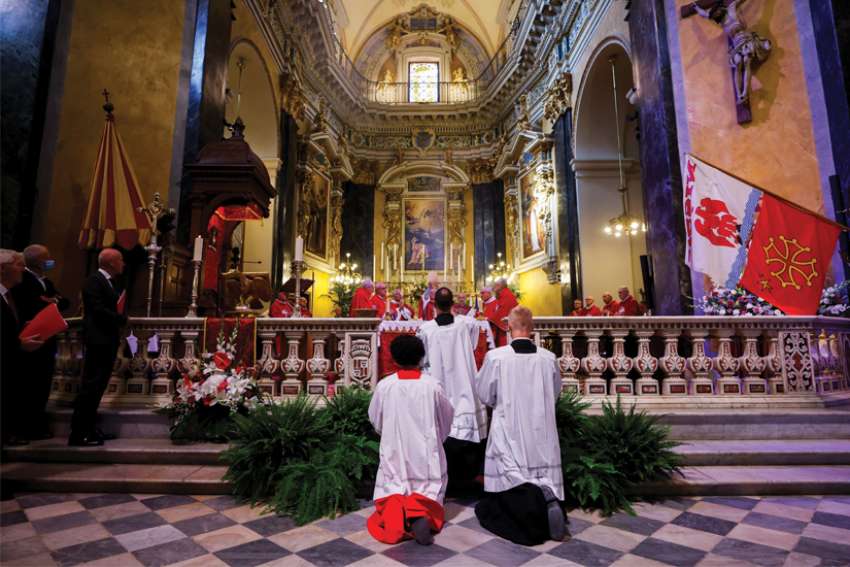On Oct. 4 the bishops of France came before the nation to confess the Church’s sinfulness.
Back home in Edmonton after five years of advanced studies at l’Institut Catholique, Basilian Fr. Warren Schmidt was naturally shocked, appalled and shamed by the sheer scale of the abuse uncovered by an independent, lay-led investigation commissioned by France’s conference of Catholic bishops. But he was not surprised.
“This isn’t a uniquely French problem,” Schmidt told The Catholic Register. “We’re going to have to wake up to the fact that there’s a systemic problem. I don’t think we’re there yet. I don’t think any bishops’ conference — including us, including the French, including the Americans, the Australians, whatever — are there yet.”
In his response to the French report projecting at least 216,000 children abused at the hands of priests over 70 years, and as many as 330,000 victims if we include teachers, catechists and other lay leaders, Pope Francis also seemed to suggest we’re not there yet.
“I would like to express to the victims my sadness and pain for the trauma that they suffered,” Pope Francis said the next day. “It is also my shame, our shame, for the incapacity of the Church for too long to put them at the centre of its concerns.”
The report found that abuse in the French Church had been covered up in a “systemic way.” A “veil of silence” allowed the problem to fester. Compared to other institutions that work with children, the rate of abuse in the Church was higher, the report’s authors said. President of the investigative committee, Jean-Marc Sauvé, told reporters, “Until the early 2000s the Catholic Church showed a profound and even cruel indifference towards the victims.”
From his experience within the French Church, Schmidt attributes these failures to the insularity of the priesthood and Catholic institutions.
“I see France as — of anywhere I have ministered and lived — as a very insular Church, a very kind of insular institution,” Schmidt said.
At Edmonton’s St. Joseph’s College where he teaches liturgy, Schmidt is putting the finishing touches on a PhD thesis. In his thesis, Schmidt examines the rite of ordination and its meanings in terms of power and grace. The abuse problem in the Church has a lot to do with getting the balance wrong between the two, Schmidt said. Too much power, not enough grace.
“You’re always going to have an aspect of power of orders and power of jurisdiction in the priesthood, in ordained leadership. But again, if that’s your end-all and be-all then you end up with insularity,” he said.
Schmidt has met French bishops’ conference president and Reims Archbishop Éric de Moulins-Beaufort, as well as many other overworked and generous priests. He doesn’t see the abuse crisis primarily in terms of individual failings of arrogant, abusive priests protected by a layer of bumbling, self-interested bureaucrats who can’t run an investigation or take decisive action.
“You have had great bishops, and still do, in France. I count Msgr. de Beaufort as one of them — hardly what you would describe as bumbling, let alone cruel,” Schmidt said. “It’s just the weight of the institution. The institution has been insular.”
If there’s a way out, it lies in a more missionary, open Church.
“What I would do is really look to build a more missionary Church,” he said.
For Schmidt, the model for that renewed, outwardly focused Church is sketched out in the documents of Vatican II and in the basic, pastoral instincts of Pope Francis. Schmidt particularly points to Pope Francis’ 2013 statement, “I prefer a Church which is bruised, hurting and dirty because it has been out on the streets, rather than a Church which is unhealthy from being confined and from clinging to its own security.”
“The root cause is seeking one’s own power or seeking one’s own benefits and navel gazing. There are elements of that, big time, in the French Church,” said Schmidt. “That’s what they’re going to have to deal with. It’s power over grace that still sometimes rears its head.”


